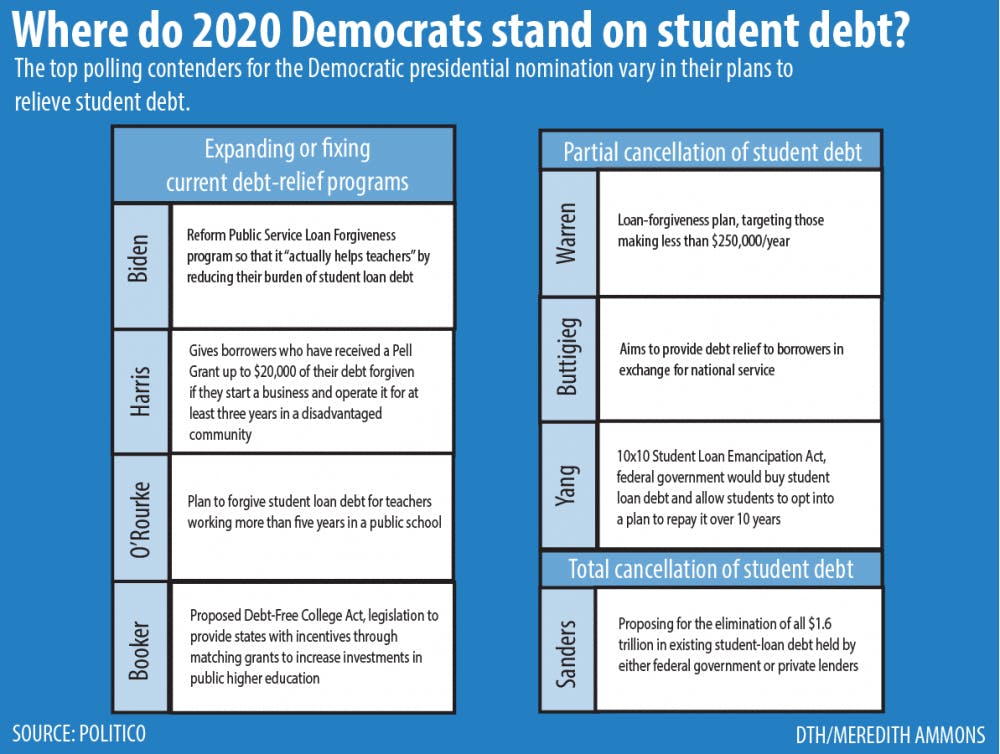With the third Democratic presidential primary debate on Thursday, the field has been effectively cut in half, with only 10 candidates taking the stage. One issue that affects UNC students is the candidates' positions on the student debt crisis.
About 1.2 million North Carolinians carry student loan debt, a total of $44 billion. Between 2008 and 2018, North Carolina ranked second nationally in the growth of its student loan debt, with tuition at in-state public, four-year colleges rising 45 percent in this period.
UNC ranks fourth in the state in the average student loan debt per borrower among universities, with an average of $22,466 owed and 40 percent of graduates carrying some student debt.
The total amount of outstanding student loan debt sits at $1.61 trillion, divided among 44.5 million borrowers. This places student loan debt as the second highest consumer debt category, behind mortgage debt, but greater than both credit card and auto loan debt.
Because of the issue's magnitude, it is helpful to consider some of the candidates’ positions on the student loan debt crisis, as well as the Trump administration’s proposals moving forward.
Major proposals from the Trump administration include limiting borrowing, simplifying the repayment system and eliminating Public Service Loan Forgiveness altogether.
Lance Won, a UNC senior, carries about the same amount of debt as the average borrower, but doesn't think Trump's proposals address larger problems of rising tuition costs.
“It’s like a Band-Aid, but again there’s a much larger problem,” Won said. “There’s probably trillions of dollars, if not hundreds of billions of dollars of debt. What percent of that can be resolved through public service?"
Still, Won maintains an open mind going into the 2020 election.



